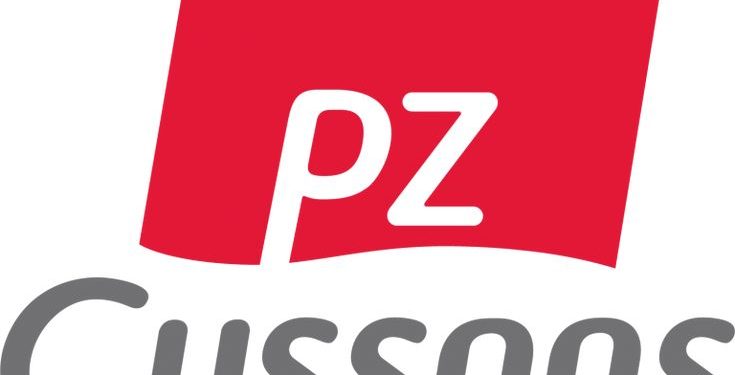Consumer goods powerhouse PZ Cussons, known globally for household brands such as Imperial Leather, Morning Fresh, Carex, and Cussons Baby, is reportedly preparing for a major restructuring that may include a full or partial exit from its African operations, with Nigeria the company’s largest African market being most affected. This significant strategic shift comes in response to unrelenting macroeconomic challenges in Nigeria and broader foreign exchange instability across key markets.
The revelation, initially shared via industry insiders and brand communicators on social media, signals the potential end of a corporate legacy spanning over 120 years on the African continent.
A Century of Market Dominance Under Threat
PZ Cussons, a British-founded conglomerate, has operated in Nigeria since 1899 and has grown into a cornerstone of the West African consumer goods industry. The Nigerian market alone contributes nearly 29% of the company’s global revenue and has long been regarded as the firm’s most diverse and dynamic frontier.
Yet, despite the deep roots and brand loyalty cultivated over generations, the deteriorating economic conditions in Nigeria are now threatening the company’s sustainability in the region.
Economic Triggers Driving the Exit Consideration
Severe Currency Devaluation
Between May 2023 and May 2024, the Nigerian naira suffered a dramatic collapse, losing around 70% of its value. This sharp depreciation had a catastrophic effect on companies with foreign-denominated liabilities. For PZ Cussons, it resulted in an estimated foreign exchange loss of £107.5 million. The steep fall in the naira not only wiped out corporate profits but significantly eroded shareholder equity, placing immense pressure on financial performance.
Plummeting Revenues in Africa
During the company’s third quarter ending March 2024, revenues from its African operations declined by almost 24%. This fall was largely attributed to the devaluation of the naira and the resultant increase in operating costs. In stark contrast, revenue contractions in Europe and the Americas were minimal recording only 1.4% and 10.7% respectively highlighting how disproportionately the African market has been impacted.
Deepening Financial Losses in Nigeria
The Nigerian subsidiary of PZ Cussons has reported consecutive and deepening quarterly losses. In Q2 2024, the company recorded a staggering ₦74.14 billion in losses, which further ballooned to ₦94.78 billion by Q3. These figures represent some of the worst financial results in the company’s recent history and reflect the unsustainable nature of doing business in the current Nigerian climate.
In response to these mounting pressures, PZ Cussons’ board of directors has launched a comprehensive strategic review of its African operations. Company executives have confirmed that the group is now entertaining multiple proposals and expressions of interest for both full and partial acquisitions of its African business units.
The company’s CEO, Jonathan Myers, has publicly acknowledged that “nothing is ruled out,” signaling the seriousness with which management is approaching this potential pivot. According to internal sources, the board is committed to protecting long-term shareholder value, even if that means exiting a market where the company has been a household name for over a century.
Resilience Abroad: Global Strategy Contrast
While Africa struggles under economic strain, PZ Cussons has experienced strong performance in other regions. The UK personal care segment, in particular, has shown robust double-digit growth. The success has been attributed to renewed marketing efforts, streamlined product portfolios, and intensified focus on core “must-win” brands such as Carex, Original Source, and Imperial Leather.
The group’s Chief Marketing Officer has reportedly overseen a successful repositioning strategy in these mature markets, allowing the company to capitalize on shifting consumer preferences and regain brand momentum.
If the exit plan materializes, millions of Nigerian consumers could face reduced access to essential and affordable personal care products. Furthermore, hundreds if not thousands of jobs could be jeopardized across PZ’s manufacturing plants, sales units, and administrative divisions.
There may be opportunities for local or regional FMCG companies to acquire PZ Cussons’ brands and distribution networks. However, any such acquisition would carry significant risks, including exposure to Nigeria’s volatile currency and high inflation environment.
PZ’s potential withdrawal is part of a growing pattern of multinational divestment in Nigeria. Several international brands, including GSK, Sanofi, Bayer, and Unilever, have scaled back or exited due to similar economic conditions. The cumulative effect highlights the urgent need for structural reforms in Nigeria’s business environment particularly around forex policy, import logistics, and foreign investment protections.
In recent months, PZ Cussons continued to maintain its corporate social responsibility efforts in Nigeria. Notably, its Morning Fresh brand organized eco-cleanup campaigns and environmental awareness drives in Lagos communities. However, these efforts have been largely overshadowed by the financial strain and public concern over the future of the company’s presence in the country.






















































